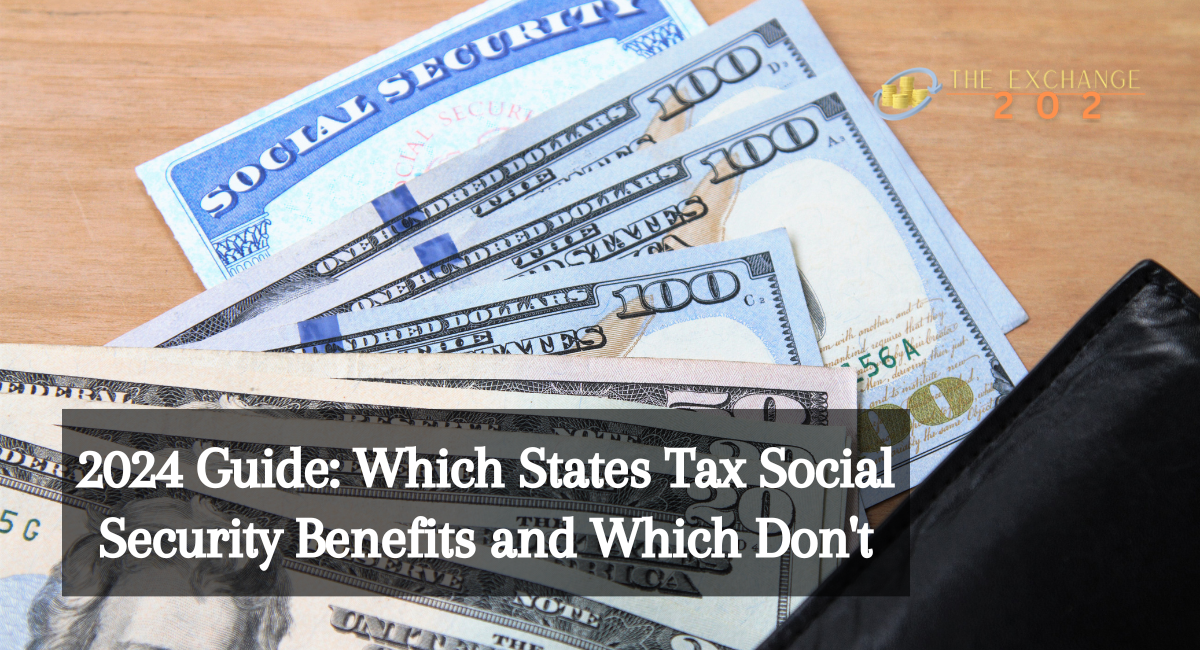Eleven states have imposed taxes on Social Security benefits, with expectations to continue this practice into 2024. These states include Colorado, Connecticut, Kansas, Minnesota, Missouri, Montana, Nebraska, New Mexico, Rhode Island, Utah, and Vermont.
It’s important to recognize that tax obligations on Social Security benefits can vary significantly across these states. some states offer tax reductions based on age or income levels:
States Tax Social Security Benefits
Connecticut: Retirees with an annual adjusted gross income (AGI) below $75,000 for single filers and $100,000 for joint filers may deduct most or all of their Social Security income. Those exceeding these limits can deduct 75% of their Social Security payments.
Kansas: Residents with an AGI of $75,000 or less are exempt from state taxes on Social Security benefits, regardless of their filing status.
Missouri: Social Security benefits are taxable, except for individuals with an AGI under $85,000 (single filers/heads of household) or $100,000 (joint filers).
Montana: While Social Security is generally taxable, those earning below $25,000 (or $32,000 for joint filers) annually can fully deduct their Social Security retirement income. Starting from 2024, the taxation of Social Security benefits in Montana will align with federal tax standards.
Nebraska: Social Security benefits follow a sliding tax scale based on AGI, with complete tax exemptions for married couples earning below $59,100 and individuals earning under $44,460. Nebraska plans to eliminate state income tax on benefits by 2025.
New Mexico: Taxes on Social Security benefits have been eliminated for individuals earning below $100,000 and married couples filing jointly with incomes under $150,000.
Rhode Island: Individuals who have reached full retirement age and have an AGI below $86,350 (single filers/head of household) or $107,950 (joint filers) are exempt from taxes on Social Security.
Vermont: Single filers with an AGI of $50,000 or less, and joint filers with $65,000 or less, qualify for a full exemption from state taxes on their benefits. Partial exemptions apply for those earning slightly above these thresholds.
Utah: A new income-based tax credit system has been introduced to benefit single filers earning under $30,000 and joint filers under $50,000, with partial exemptions available for higher incomes. The tax credit decreases by 25 cents for every dollar earned above these limits.
States Which Don’t Tax Social Security Benefits
Furthermore, residents in nine states will not have to pay state income taxes on their Social Security benefits in 2024, as these states do not levy state income taxes at all: Alaska, Florida, Nevada, New Hampshire, South Dakota, Tennessee, Texas, Washington, and Wyoming. This information is crucial for retirees and those nearing retirement, providing insight into the financial implications of state residency on Social Security taxation.
How Much Do Retirees Save on Social Security Taxes in These States?
Assuming you live in a state that doesn’t tax Social Security benefits, you can figure out how much you’re saving on taxes by checking out the effective rate of tax you paid to your state for all taxed income sources and applying it to your total Social Security benefits.
“So if, say, your effective rate in your state was 5 percent and you collected $30,000 in Social Security, that would be a $1,500 savings,” Kuhn says.
Retirees not taxed on Social Security benefits by their state of residence save an impressive amount.
“In Missouri, for instance, that’s a collective annual saving of around $309 million,” says Jeff Rose, CFP, founder of Good Financial Cents. “In Nebraska, it’s about $17 million. That’s a lot of money that retirees get to keep in their pockets instead of it being drained away by state taxes.”
Retirees and those nearing retirement should consider the tax implications of their chosen state of residence on their Social Security benefits. By staying informed about state tax policies and planning accordingly, retirees can maximize their income and enjoy a more financially secure retirement.
As we move into 2024, the landscape of Social Security taxation across the U.S. continues to evolve. For retirees, staying informed and proactive in financial planning is essential to navigating these changes and securing a comfortable and financially stable retirement.
